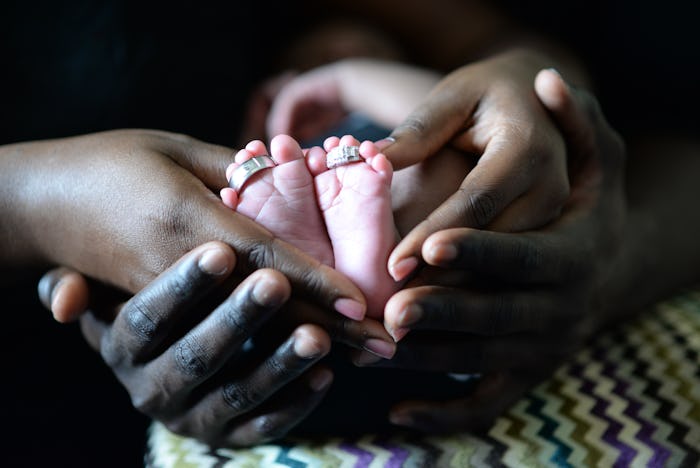Life
Study Shows New Parents Consider Judgment From Employers While Planning Their Families
Having a baby and deciding to start a family should, 100 percent, be a personal decision for everyone. But along with a presumably long list of factors potential parents consider, unfortunately, employers have made their way onto the list. A recent study shows new parents consider judgment from employers while planning a family. It's a consideration that certainly speaks volumes about work culture in the U.S.
Slate cited a study released by the Bright Horizons Modern Family Index, which revealed startling information about the work-related concerns of potential parents. According to the study, 70 percent of first-time parents – those considering the timing of their first baby, and those planning to start a family in the short-term – were concerned about the effects having a baby would have at their workplace.
The study revealed that 70 percent of expectant mothers considered their workplace when considering the timing of their first baby. As for expectant fathers, 66 percent revealed the same thing.
What's more, according to the study's findings, many, expectant and new, mothers and fathers expressed experiencing biases in the workplace. Here were some of the challenges new mothers outlined in the survey:
1 in 5 felt they were now at greater risk of being fired
1 in 5 were passed over for a new opportunity
1 in 4 new parents experienced judgment from supervisors and/or coworkers
New dads also expressed some troubling experiences in the workplace, according to Slate, which cited the study:
More than one-third of new dads felt negatively judged by their coworkers and supervisors after announcing fatherhood
1 in 3 felt it limited their opportunities for advancement
1 in 4 believe that the announcement of fatherhood caused employers to think less of them
The study's findings are disappointing, but perhaps not entirely surprising considering the United States still does not mandate paid leave for new parents. Aside from health and child development benefits associated with having paid parental leave, not having it has proved to encourage continued stigmas against parents for taking time off after a baby is born.
The Bright Horizons Modern Index studies included a sample of 530 employed women ages 18 and over, who were either currently pregnant with their first child or planning to have their first child. A second study, focusing on parents returning to work after their first child was born, included 515 employed women and 130 employed men, all over the age of 18.
Here's a clip of an analysis of the study:
The 2016 Modern Family Index sheds new light on an old problem — that despite an ongoing national conversation about the need for family-friendly workplaces, organizations are still not successfully helping people effectively manage families and careers. Both women and men continue to worry about what happens to careers after starting a family...
Here's to hoping that legislation in the United States moves in the direction of supporting new and growing families.
